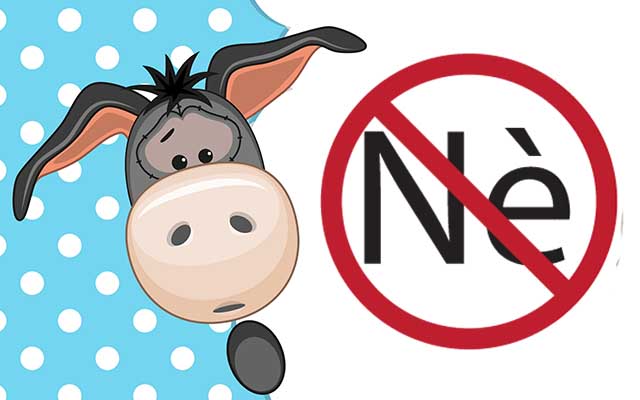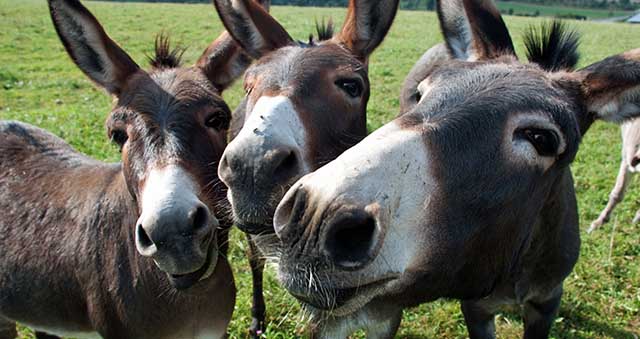
Né, Nè o Ne? La guida essenziale
Né, Nè o Ne? The Essential Guide
L’estate di Pulcino Pio — Tormentone dell’estate
The summer of Pulcino Pio — The summer hit that grates on the nerves
Oggi voglio parlarvi di una parola italiana interessante: piccolissima, ma potentissima – la parola “ne”. Oppure è “nè” o “né”??? Aspettate un attimo! Che cosa significa questa parola e come si usa… con o senza accento?
Today I want to talk about an interesting Italian word: very small, yet very powerful – the word “ne.” Or is it “nè” or “né”??? Wait a minute! What does this word mean and how do you use it… with or without the accent?

Né con l’accento acuto
Né with the Acute Accent
Iniziamo con la versione accentata di “né”. È importante sapere che non si usa mai “NÈ” con un accento che pende a sinistra – si chiama accento grave. Semplicemente non esiste, è SBAGLIATO!
Let’s start with the accented version of “né”. It’s important to know that you never use “NÈ” with an accent leaning to the left – called the grave accent. It simply doesn’t exist and is WRONG!
Beh, a meno che non stiate cercando di imitare il suono di un asinello che raglia nella canzone “Nella vecchia fattoria.” In quel caso, l’asinello fa nè-nè, nè-nè!
Well, unless you’re trying to mimic the sound of a braying donkey in the song “Old MacDonald Had a Farm.” In that case, the donkey goes nè-nè, nè-nè!

Ma tornando alla grammatica
But back to gramma
Con la versione accentata di “né” si usa SEMPRE l’accento acuto, che pende a destra. Si usa “né” per indicare una negazione, come congiunzione che significa “e neanche” o “né… né”.
With the accented version of “né,” you ALWAYS use the acute accent, leaning to the right. “Né” is used to indicate negation, serving as a conjunction meaning “neither… nor.”

Non interessa né a te né a me.
It isn’t interesting to you or me.
Stasera non voglio mangiare né la pizza né la carne.
Tonight, I don’t want to eat pizza or meat.
Il piccolo “ne” senza accento
The Little “Ne” Without the Accent
La parola “ne” senza accento ha significati diversi. Può fungere da pronome, sostituendo un sostantivo per evitare ripetizioni.
The word “ne” without an accent has various meanings. It can act as a pronoun, replacing a noun to avoid repetition.

Quanti fratelli hai? Ne ho sette.
How many siblings do you have? I have seven of them.
Parli di politica con i tuoi amici? Certo, ne parliamo spesso.
Do you talk about politics with your friends? Certainly, we talk about it often.
Inoltre, “ne” si usa in espressioni idiomatiche come “andarsene” (andare via) o “starsene” (rimanere). Qui funziona come avverbio di luogo, sostituendo espressioni come “da lì” o “da là.”
Additionally, “ne” is used in idiomatic expressions like “andarsene” (to go away) or “starsene” (to stay). Here, it acts as an adverb, replacing expressions like “from there” or “from here.”
Me ne occupo io.
I’ll take care of it.
Io invece me ne ritorno in Italia appena possibile.
I, on the other hand, will return to Italy as soon as possible.
Guarda un Film su di Matera
Ascolta gli italiani per imparare!
Listen to Italians to Learn!
Per capire come usare “ne” in modo naturale, ascoltate gli italiani. Guardate film o serie TV e prestate attenzione alle frasi abbreviate che usano “ne”.
To understand how to use “ne” naturally, listen to Italians. Watch movies or TV series and pay attention to the short phrases using “ne.”
Che ne pensi?
What do you think about it?
Non mi va parlarne.
I don’t feel like talking about it.

Ne vale la pena di imparare “Ne” e “Né” (e Nè)
It’s worth learning “Ne” and “Né” (e Nè)
Capito la differenza tra “né” e “ne”? Ricordate: mai usare “nè” con l’accento grave… a meno che non vogliate sembrare un asinello!
Got the difference between “né” and “ne”? Remember: never use “nè” with the grave accent… unless you want to sound like a donkey!











Capisco come usarlo,ma dimentico usarlo quando parlo ; )
My favorite ~ ne vale la pena ~ often in a conversation about dessert!